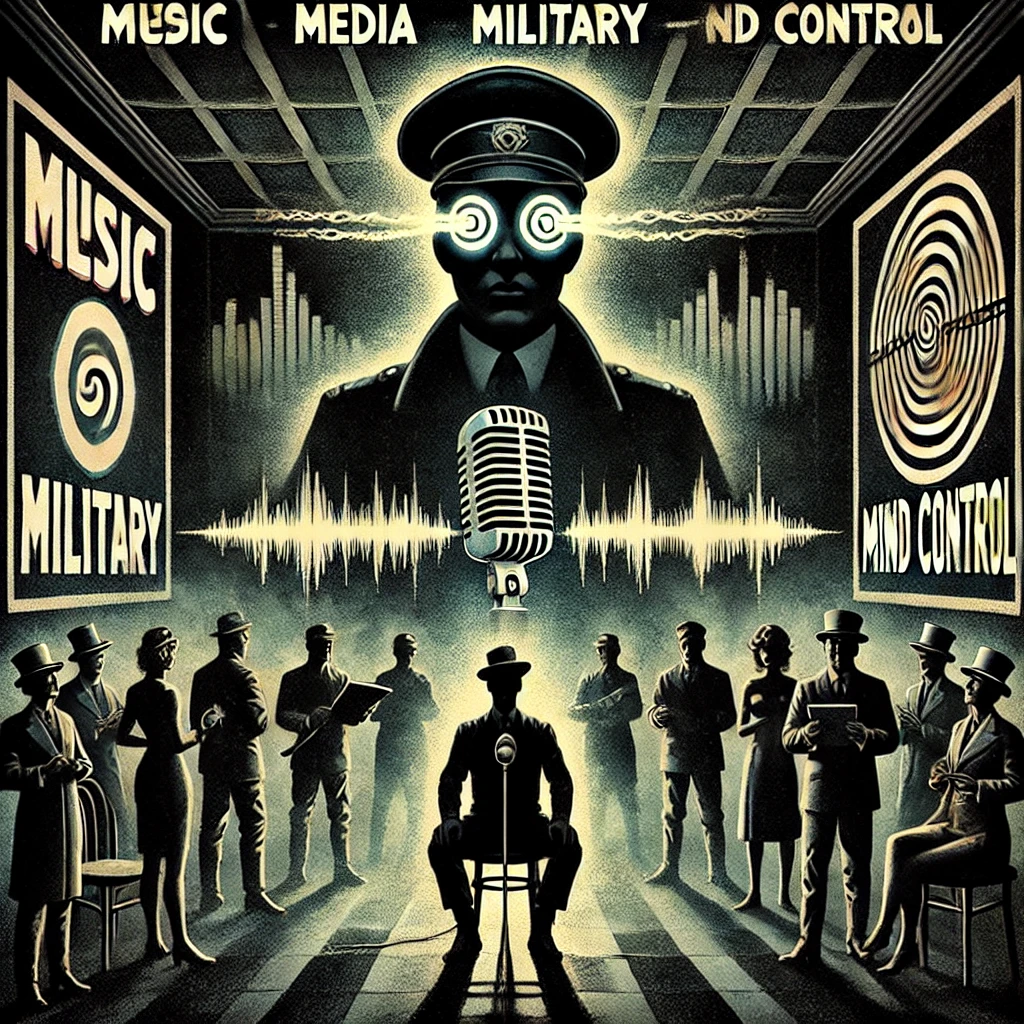Music Media Military Mind Control
It’s probably fair to assume that the majority of us who’ve followed the research of Neil Sanders initially became aware of him from his numerous guest-spots on Richard D. Hall’s ‘Rich Planet TV’ show. Since his first appearance on the programme in 2010, he’s firmly established himself in the ‘Alternative’ arena as a popular and respected expert on the subject of Mind Control.
Late last year, Neil released two books under the umbrella-heading of, ‘Your Thoughts Are Not Your Own – Mind Control, Mass Manipulation and Perception Management.’
Volume 1 examines the various brain-altering experiments and projects carried out by the world’s governments and their agencies. It focuses on MK ULTRA, Manchurian candidates, psychotronic devices, microwave weaponry, synthetic telepathy, LSD, hypnosis, trauma, serial killers, school shootings, and the notorious Tavistock Institute. In the interview above however, Neil talks to ‘ConspiroTV’ about Volume 2, ‘Marketing, Movies and Music’ which, according to the book’s introduction, explores “mass Mind Control and how different aspects of the media, namely advertising, news and entertainment, are used to manipulate perceptions of the world.” Furthermore it looks “at how these seemingly separate entities may in fact be intrinsically linked to aspects of the Military Industrial Complex and broader Mind Control programs. Education, sales and marketing, politics, entertainment, celebrities, drugs and military and intelligence-agency Mind Control programs are far more closely linked than it at first appears.”
During the interview, Neil talks about the corrosive and hypnotic effects of TV and how our identities and perceptions of life have been moulded by the advertising industry. He also discusses Hollywood movie propaganda, the victimisation of famous entertainers who’ve spoken out against The Establishment, MK’ed celebs, manufactured Pop acts, music as a form of protest, musicians’ links to the military, the CIA’s role in the rise and fall of the 1960s Hippie/counter-culture movement and it’s apparent complicity in the promotion of the Gangsta-rap lifestyle and the east coast / west coast rivalry in Hip Hop.
*This interview was recorded on May 6th 2013*
Check out Neil’s website:
http://www.neilsandersmindcontrol.com/
See also very similar youtuber MARK DEVLIN
Neil Sanders is a British author and researcher who has written extensively on topics related to mind control, propaganda, and the influence of the military and media on society. In his work, Sanders explores the ways in which various institutions, including governments, intelligence agencies, and corporations, use psychological techniques to manipulate and control public opinion. Here are some key points related to the intersection of music, media, military, and mind control as discussed by Neil Sanders:
1. Music as a Tool for Influence: Sanders suggests that music can be used as a powerful tool for influencing public opinion and behavior. He explores how music is often employed in advertising, film, and other forms of media to evoke emotional responses and shape perceptions.
2. Military Influence on Media: Sanders examines the relationship between the military and the media, highlighting how military organizations often seek to control the narrative surrounding conflicts and geopolitical events. He discusses tactics such as censorship, propaganda, and psychological operations (psyops) used by military and intelligence agencies to shape public opinion.
3. Mind Control Techniques: Sanders delves into various mind control techniques employed by governments and other organizations to manipulate individuals’ thoughts, beliefs, and behaviors. These techniques may include hypnosis, subliminal messaging, and psychological conditioning, among others.
4. Media Manipulation: Sanders explores how mainstream media outlets can be used to disseminate propaganda and shape public perception in support of certain political agendas or corporate interests. He discusses the role of media consolidation, censorship, and psychological manipulation in influencing public opinion.
5. Historical Context: Sanders provides historical context for the use of mind control and propaganda techniques, tracing their development from early psychological experiments to their application in modern-day media and military operations. He highlights key figures, events, and case studies to illustrate the evolution of these techniques over time.
Overall, Neil Sanders’ work offers a critical examination of the ways in which music, media, the military, and other institutions can be used to influence and control individuals’ thoughts, beliefs, and behaviors. He encourages readers to question the information presented to them and to remain vigilant against manipulation and deception in the modern world.
